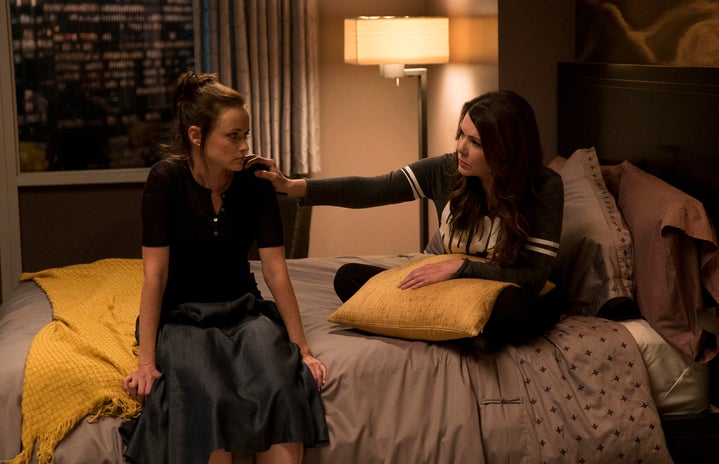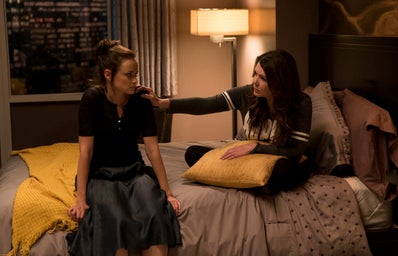The complexities of womanhood have been explored extensively in recent media. We have seen an interest in female characters that embody a dark and nihilist side of femininity, one that goes far beyond the superficial perception of womanhood we see in most media written by men. Women are attracted to movies like Gone Girl, Parallel Mothers, and Fleabag because they show the tribulations of modern womanhood, some of them go even further and show women as immoral antagonists. One of the most talked-about movies of the year is The Worst Person in The World. It’s about a young woman, Julie who is definitely not the worst person in the world, but she is selfish, reckless, and unfaithful. All it took for me and my friends to watch the movie was to read the title — my first thought was they made a movie about me; I must see it. The person working the concession stand told us how most people leaving the theater expressed the same thing — they saw themselves in Julie.
The popularity of Phoebe-Waller Bridge’s Fleabag is a perfect example of this fascination. Women are attached to the narrator of the show because she is imperfect, she embodies the struggles and pains of womanhood that men simply have no understanding of. We love Fleabag because we see ourselves in every mistake she makes. Instead of vilifying her flaws, Phoebe-Waller Bridge makes them the punchline of the show. She is a bad person and yet is still seen as worthy of redemption. One of the most quoted lines from the show is from an older woman character played by Kristin Scott Thomas who shares with Fleabag the beauty of menopause.“Women are born with pain built-in,” she says. “It’s our physical destiny: period pains, sore boobs, childbirth, you know. We carry it within ourselves throughout our lives, men don’t.”
“We have it all going on in here inside, we have pain on a cycle for years and years and years, and then just when you feel you are making peace with it all, what happens? The menopause comes, the f***ing menopause comes, and it is the most wonderful f***ing thing in the world. And yes, your entire pelvic floor crumbles and you get f***ing hot and no one cares, but then you’re free, no longer a slave, no longer a machine with parts. You’re just a person.”
This monologue explains it all. The modern interpretation of the female villain is self-aware, self-critical, and self-destructive. She is a product of self not simply a product of her circumstance. We love these “bad” characters because they’re imperfect. It is their flaws that earn them humanity and relatability.
Maggie Gyllenhaal’s latest film The Lost Daughter presents this same trope of the imperfect woman in a much more unsettling way. The movie follows Leda (Olivia Coleman) a middle-aged Italian literature professor on a solo vacation on a Greek island. There she meets Nina (Dakota Johnson) a young mom and her daughter. Nina’s struggles as a mother prompt Leda to reminisce about her own experience as a young mom.
It’s a movie about motherhood but not one about love. Leda is undoubtedly a “bad” mom. Flashbacks to her youth show her ambivalence to motherhood. She finds her children a burden — there are scenes where she looks at her own kids in utter disgust and annoyance as she watches her youth and talent be sacrificed to frustration.
Leda is far worse than the imperfect mother we are used to seeing. The Lost Daughter deviates from the lovable Lorelai Gilmore archetype of a flawed mother. Lorelai was a young, single mom who had to sacrifice almost everything to raise a child. She is reckless and immature, but we were able to forgive her and love her because she still showed selfless devotion to her child. The lack of his unconditional maternal love is what makes Leda’s experience as a mother so unsettling. She chooses selfish happiness and leaves her family. She is gone for months and then years. It’s disturbing to watch because becoming her is our worst nightmare — not being able to access that magical selfless force of motherhood. What happens if the minute a mother looks into a newborn’s eyes, she doesn’t feel that spark of eternal love? What if she feels nothing and even worse, resents them for the sacrifices she’ll have to make?
Leda chose herself and her life. In Leda, we see a mom who was never given the key that opened the doors to this supposed “sacred” fate of a woman. She entered defenseless, without the magical maternal superpowers, and subsequently gave up.
Bad parenting is hardly ever seen as a moral flaw when it comes to fathers. But of course, this manifests so much more morbidly for mothers. When the dad leaves he becomes another absent father. The mom even dares to feel frustration, she makes one mistake, shows one ounce of selfishness, and gets to bear the guilt forever. The Lost Daughter amplifies the gruesome and nihilistic experience of femininity — The pain of surviving womanhood. As Leda says: It doesn’t get better.


